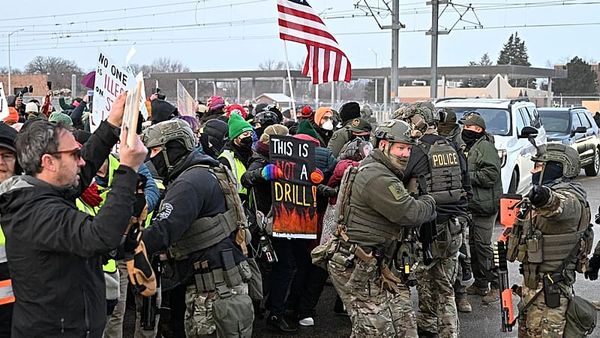
- Before the fires, California was grappling with soaring home prices and rents, interest rates that were higher than what some are used to, and insurers that were pulling back. It could get worse before it gets any better.
In the days that followed the devastating L.A. wildfires, California Gov. Gavin Newsom and Los Angeles Mayor Karen Bass vowed to cut the metaphorical red tape to rebuild. The question is how far they will go.
Redfin chief executive Glenn Kelman predicted the change could be altogether radical.
“California was the place that just perfected NIMBYism,” Kelman said, referring to the not-in-my-backyard crowd that tends to oppose development in their own neighborhoods. Legislation has been passed in recent years to make it easier to build homes, and even more attention is on the issue now that the state desperately needs to rebuild in cities destroyed by the fires.
“I think they’ve been looking for an opportunity to do so, and the fire gives them that,” Kelman said. “I have been a longtime YIMBY, so of course I support all of this," he added, referring to the opposite of Nimby, yes-in-my-backyard. "So many of our economic troubles, so much of this generational malaise tracks back to home prices increasing at an unprecedented rate, especially during the pandemic, and then interest rates going up, and now insurance going up.” With that third pillar assured to engulf the region’s owners and renters, the ultimate impact is unclear, but it could be severe.
Kelman continued: “It’s a bit of a triple threat that we’ve never seen before.”
Because he is a former Californian, he feels some nostalgia and grief for what is potentially in store. Los Angeles has so much character, he said, and some of its neighborhoods won’t look the same. “I think they’re going to be built for more density. It’s exactly what the society needs, but it’s never going to look the way that it did before the fires came through,” he said.
Kelman predicts coastal properties will always be desirable. In prior climate disasters across the country, his experience is that recovery is slow going, but after three or so years people start coming back. “We socialize the risk of living in areas prone to wildfire and somehow limit the insurance costs,” he said. Still, he does think insurers will pull back even more following the fires.
“Sometimes I just just wish it weren’t so political,” he said. “I hear about the fire department being blamed, or California being blamed, and just think, How dare you? Have you actually talked to anyone who is going through what those folks are going through? How dare you feel that way?”
Ultimately, his hope is that California will have a construction boom. “We’ve elected a president who used to be a real estate developer,” Kelman said. “He could become the real-estate-developer-in-chief.”
If it isn’t price gouging, it might be a bidding war because people need homes. It’s no secret California had a housing crisis before the fires and now regions are in mourning and dealing with walking wounded. So far, it is estimated that 28 people are dead from the Palisades and Eaton fires and more than 15,000 structures destroyed. It could cost between $250 billion and $275 billion in total damage and economic loss.
The precise number of homes that have burned down or are ruined due to smoke or other damage is unknown beyond estimates. It’s also unclear how the cascade effect will reshape the housing landscape in Southern California—where all the people who lost their homes will go, what will happen to rents and home prices, and what insurance will cover.
Kelman said Redfin has seen more people listing homes for sale or rent. He thinks there are some people who were already considering leaving Los Angeles and probably will now. But it is possible that rents and home prices will rise as they have for years in the Golden State because of a shortfall of homes fueled by decades of policy failure.
Builders fled California because of how hard it was to build anything due to local control, neighborhood opposition, land-use regulation, environmental reviews, lack of land—you name it. But it is time to build. “You have to have a hole in your head as a builder not to come back to California at this point,” he said. “You’ve got a very friendly government…and suddenly there’s whole neighborhoods that need to be rebuilt,” Kelman said, hope in his voice.
Kelman tends to be optimistic; last time we spoke, he called himself the luckiest person in the world, despite saying housing was in a recession. Still, he is clear that the fires have been hard on his team and real estate workers in general. An agent who was displaced by the fires herself has clients calling her worried about their homes, and all the while she didn’t even have enough time to pack her children’s clothes for school as her own home blazed.
“People think you’re a saint just for picking up the telephone,” he said. “So I worry that I have to have some novel words of wisdom or comfort, and mostly what I do is, I just call and the other person starts talking, and I listen for a long time, and it does my heart good. It does the other person good.”
The company has decided to stand by its employees, but “it can’t be a blank check [financially]. It can’t be forever,” Kelman said. Extreme weather is plaguing the country to the extent that Redfin is trying to figure out if now it needs to have a line item in every year’s budget for it.
“It’s already a tough housing market,” Kelman said. “Redfin has been through the wringer. We’ve had layoffs where we put employees through the wringer…but it’s pretty easy to be the good guy when the fire is the bad guy.”







